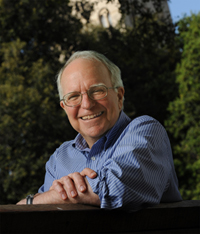The Brookings Institution is committed to quality, independence, and impact.
We are supported by a diverse array of funders. In line with our values and policies, each Brookings publication represents the sole views of its author(s).

Research
BPEA | 1992 No. 2
1992, No. 2
As I WRITE, the U.S. economy remains mired in the slowest recovery from any recession in the postwar period. Consumer confidence and consumption spending, in particular, have been exceptionally weak, and the unemployment rate has continued to rise long after many other indicators began to improve. This paper presents evidence that these facts are related, in the sense that consumer pessimism about unemployment explains a substantial part of the recent weakness in consumption. However, neither theoretical consumption models commonly used for macroeconomic research nor standard macroeconometric forecasting models provide a direct role for unemployment expectations in determining current consumption.3 By contrast, this paper shows that the “buffer-stock” model of saving that has evolved from the work of Stephen Zeldes and Angus Deaton and from my previous work can imply a central role for unemployment expectations.